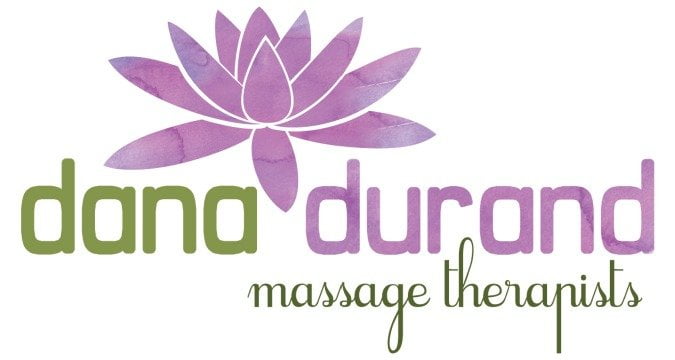How to Find a Reiki Therapist in Your Area
reiki attunement near me
Looking for a therapist who can help you with energy healing? Here's how to find a reiki therapist near you. Reiki is an ancient form of energy healing that can help reduce stress, promote relaxation and improve your overall health.

Take a break from the stresses of daily life and relax.
It's important to take a break from the stresses of daily life and relax. With work, family, and other obligations, it's easy to get caught up in the hustle and bustle of everyday life. However, it's important to take time for yourself and unwind. There are many ways to relax, such as reading, listening to music, or spending time in nature.
Receive guidance and support from a reiki therapist
The stresses of daily life can take a toll on our physical and mental wellbeing. Reiki is a holistic therapy that can help to reduce stress and promote healing. During a Reiki session, a practitioner will place their hands on or near the client's body, channeling energy into the client to promote relaxation and balance.
Reiki Therapist | reiki attunement near me
A reiki therapist or reiki attunement is a professional who has been trained in the use of reiki energy to promote healing. Reiki is an ancient form of energy healing that originated in Japan. It involves the use of gentle touch to channel universal life force energy into the body. This type of therapy can be used to treat a wide range of physical and emotional conditions.
The therapist will place their hands on or near the client's body in order to channel energy. This energy is said to help boost the body's natural ability to heal itself. Reiki therapy is often used to treat physical ailments, but it can also be used to improve mental and emotional well-being. Some people believe that Reiki therapy can help to reduce stress, relieve anxiety, and promote relaxation.
Reiki therapists are often able to provide relief from pain, stress, anxiety, and fatigue. In addition, reiki can also help to promote relaxation and improve overall wellbeing. If you are interested in exploring this type of therapy, be sure to find a qualified reiki therapist in your area.
1. Reiki and its benefits of receiving treatment from a reiki therapist
Reiki is a form of energy healing that has been used for centuries to promote physical, mental, and emotional wellbeing. The word Reiki comes from the Japanese words "rei," which means universal, and "ki," which means life force energy. During a Reiki treatment, the practitioner channels ki through their hands into the patient's body. This life force energy helps to reduce stress, promote relaxation, and encourage healing.
There are many benefits of receiving Reiki treatment from a qualified practitioner. Reiki can help to relieve pain, increase energy levels, improve sleep quality, reduce anxiety and depression, and boost the immune system.
Reiki is a simple, natural and safe method of spiritual healing and self-improvement that everyone can use. It has been effective in helping virtually every known illness and malady and always creates a beneficial effect. It also works in conjunction with all other medical or therapeutic techniques to relieve side effects and promote recovery.
Additionally, Reiki is a gentle and non-invasive therapy that can be used safely for people of all ages. If you are looking for an alternative or complementary treatment option for your health and wellbeing, Reiki may be a good choice for you.


2. How does a reiki session work and what should you expect during and after your treatment?
Reiki is a form of alternative medicine that is said to promote healing. It involves the use of Universal Energy, which is transferred through the hands of a Reiki practitioner to the client. The goal of Reiki is to promote balance in the body and mind, and it is said to be helpful for stress relief, relaxation, and promoting healing.
During a Reiki session, you will typically lie down on a massage table and relax. The practitioner will then place their hands on or above your body in a series of specific hand positions. You may feel a warm or tingling sensation during the treatment, but this is normal and should not be painful. After the treatment, you may feel relaxed and refreshed.
Some people also report feeling more energetic, balanced, and focused. It is important to drink plenty of water after your treatment to help flush out any toxins that may have been released during the session.
3. Are there any side effects associated with reiki therapy?
Reiki therapy is a form of alternative medicine that has been used for centuries to promote healing. The therapist will place their hands on the client's body, using a light touch or no touch at all, to help encourage the flow of energy.
While there is no scientific evidence to support the claim that reiki therapy can cure illnesses, many people believe in its ability to ease stress and promote relaxation. There are also some reports of negative side effects associated with reiki therapy.
These side effects can include feeling dizzy, nauseous, or lightheaded. Some people have also reported experiencing anxiety or headaches after receiving treatment. However, these side effects are typically mild and do not last long. Overall, reiki therapy is considered to be safe for most people.


4. What is the cost of a reiki session and do insurance plans cover the cost?
Reiki is often used to treat conditions such as anxiety, pain, and stress. Typically, a 60-minute session will cost between $60 and $100, while a 90-minute session can cost between $90 and $150. Some practitioners also offer discounts for multiple sessions.
Some insurance plans may cover the cost of reiki, but this depends on the individual plan. Many insurance companies consider reiki to be an alternative or complementary therapy, which means that it is not covered under most standard plans.
However, some plans may cover part of the cost if it is provided by a licensed massage therapist or other healthcare provider. However, some insurance companies offer coverage for alternative therapies as an add-on to a standard plan.
If you are interested in pursuing reiki treatment, it is important to check with your insurance company to see if they offer coverage.
5. Where can you find a qualified reiki therapist in your area
If you are looking for a qualified reiki therapist, there are a few things you can do. Start by asking your friends and family if they know of anyone who practices reiki. You can also search online directories or websites that specialize in connecting people with health care providers.
Once you have compiled a list of potential therapists, take the time to research each one. Make sure to read reviews and check out their credentials to ensure that they are qualified to provide reiki services.
When you have found a therapist you feel comfortable with, schedule an appointment for a consultation to see if reiki is right for you.
















